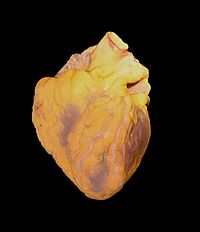
The Use of Transesophageal Echocardiography During Cardiac Arrest Resuscitation: A Literature Review
Sign Up to like & getrecommendations! Published in 2019 at "Journal of Ultrasound in Medicine"
DOI: 10.1002/jum.14794
Abstract: We propose that transesophageal echocardiography (TEE) can be used to guide cardiac arrest resuscitation. We undertook a literature search (Medline and EMBase) to assess articles on that topic. Our search yielded 55 articles falling into… read more here.
Keywords: tee; transesophageal echocardiography; cardiac arrest; resuscitation ... See more keywords

[Cardiac arrest resuscitation protocols in hospitals: A pending task].
Sign Up to like & getrecommendations! Published in 2017 at "Anales De Pediatria"
DOI: 10.1016/j.anpede.2017.01.004
Abstract: 1. García-Vera C, de Dios Javierre B, Castán Larraz B, Arana Navarro T, Cenarro Guerrero T, Ruiz Pastora R, et al. Scarlet fever: a not so typical exanthematous pharyngotonsillitis (based on 171 cases). Enferm Infecc… read more here.
Keywords: hospitals pending; pediatr; protocols hospitals; cardiac arrest ... See more keywords

Neurovascular hypoxia trajectories assessed by photoacoustic imaging in a murine model of cardiac arrest and resuscitation.
Sign Up to like & getrecommendations! Published in 2023 at "IEEE transactions on ultrasonics, ferroelectrics, and frequency control"
DOI: 10.1109/tuffc.2023.3265800
Abstract: Cardiac arrest is a common cause of death annually mainly due to post cardiac arrest syndrome that leads to multiple organ global hypoxia and dysfunction after resuscitation. The ability to quantify vasculature changes and tissue… read more here.
Keywords: arrest resuscitation; arrest; photoacoustic imaging; hypoxia ... See more keywords

The Effect of Early Application of Synthetic Peptides 19-2.5 and 19-4LF to Improve Survival and Neurological Outcome in a Mouse Model of Cardiac Arrest and Resuscitation
Sign Up to like & getrecommendations! Published in 2023 at "Biomedicines"
DOI: 10.3390/biomedicines11030855
Abstract: The synthetic antimicrobial peptides (sAMPs) Pep19-2.5 and Pep19-4LF have been shown in vitro and in vivo to reduce the release of pro-inflammatory cytokines, leading to the suppression of inflammation and immunomodulation. We hypothesized that intervention… read more here.
Keywords: arrest resuscitation; arrest; survival neurological; cardiac arrest ... See more keywords